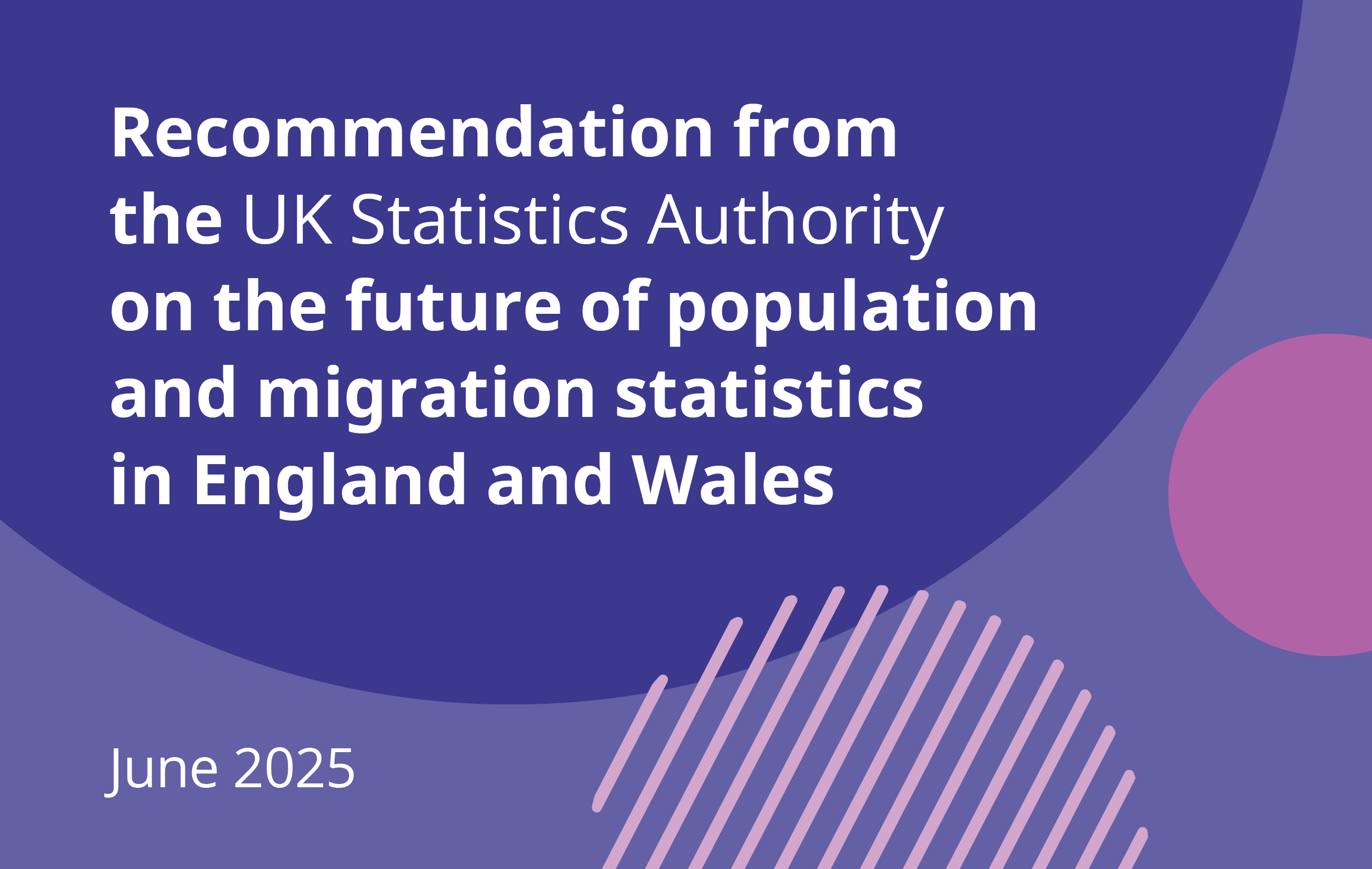Recommendation 2: continue to resource administrative-based population and migration statistics
Through its 2023 consultation, the ONS identified a strong ongoing user need for individual-level data about the population. In its research, the ONS has demonstrated the feasibility of producing a de-identified individual-level dataset including age and sex from administrative sources, which can be analysed by low geographic areas. The ONS made this dataset available securely to accredited researchers through the Integrated Data Service in December 2024. The operationalisation and continued development of this dataset into an ongoing and resilient admin–based census would pave the way for a more sustainable statistical system over the long term.
The ONS should seek to produce the admin-based census annually, increasing the number of available topics each year. Centred on the admin-based census, and using survey data where appropriate, the ONS should commit to delivering the outputs described in the section Monitoring and reporting progress.
The census in 2031 will make use of this work to increase its efficiency and precision. Additionally, the data from the census in 2031 will provide a high-quality point of comparison to understand the quality of the ONS’s statistical population dataset and admin-based census.
As the UK’s independent national statistical institute, the ONS must work in close partnership with colleagues across the UK when developing this work and develop shared methods to ensure UK coherence is maintained into the future.
Delivering an admin-based population and migration statistics system will require investment and ongoing funding. The ONS and its partners within the UK Government and across the UK statistical system must be appropriately resourced to do so.
In addition to operationalising a record-level admin–based census, the ONS should commit to producing other outputs about the population using administrative data.
The ONS has already moved to admin-based international migration estimates as ‘official statistics in development’, with the latest figures published in May 2025, and will aim for these to be designated as accredited official statistics. Through the census in 2021, it has demonstrated these admin-based estimates have improved the measurement of migration statistics in comparison to historical survey-based measures. The ONS is also developing its approach to internal migration estimates, making use of more administrative data sources.
The ONS is working to establish what administrative data sources will allow for granular, intersectional estimates of key characteristics (such as protected characteristics including ethnicity and disability; income; Welsh language; housing statistics) that are more frequent and up-to-date. This has historically only been achievable through bespoke large-scale data collection, but improvements to the public sector’s administrative data estate described in Recommendation 3 would support the delivery of this ambition. The ONS should aim to produce estimates of high quality, produced in line with the principles set out in the Code of Practice for Statistics, and should seek for these to be designated as accredited official statistics.
The data assets underpinning these estimates, including the admin-based census, should be made available to researchers through the ONS’s trusted research environments, enabling the realisation of additional benefits for the public good.
Informed by the ONS’s research into public attitudes and the importance of transparency and trust (see Background section), the ONS should initiate a project to explore citizen data as an approach to improving trustworthiness in population and migration statistics. Citizen data, as defined by The Copenhagen Framework on Citizen Data is an approach where citizens or Civil Society Organisations meaningfully participate in data collection and design.
The Authority recommends that: the UK Government commission and resource the ONS to develop statistical outputs using administrative data which provide more frequent estimates and are inclusive in representing society. This should include an administrative–based census of the population.

